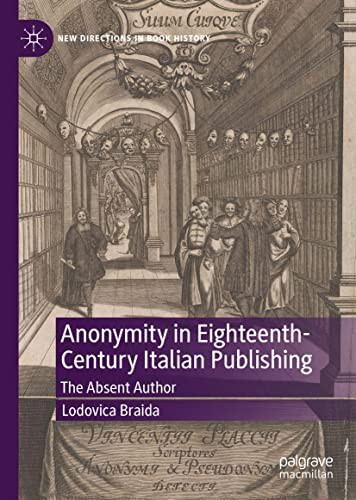

Most ebook files are in PDF format, so you can easily read them using various software such as Foxit Reader or directly on the Google Chrome browser.
Some ebook files are released by publishers in other formats such as .awz, .mobi, .epub, .fb2, etc. You may need to install specific software to read these formats on mobile/PC, such as Calibre.
Please read the tutorial at this link: https://ebookbell.com/faq
We offer FREE conversion to the popular formats you request; however, this may take some time. Therefore, right after payment, please email us, and we will try to provide the service as quickly as possible.
For some exceptional file formats or broken links (if any), please refrain from opening any disputes. Instead, email us first, and we will try to assist within a maximum of 6 hours.
EbookBell Team

4.1
60 reviewsThis book focuses on the different forms in which authorship came to be expressed in eighteenth-century Italian publishing. It analyses both the affirmation of the “author function”, and, above all, its paradoxical opposite: the use of anonymity, a centuries-old practice present everywhere in Europe but often neglected by scholarship. The reasons why authors chose to publish their works anonymously were manifold, including prudence, fear of censorship, modesty, fear of personal criticism, or simple divertissement. In many cases, it was an ethical choice, especially for ecclesiastics. The Italian case provides a key perspective on the study of anonymity in the European context, contributing to the analysis of an overlooked topic in academic studies.